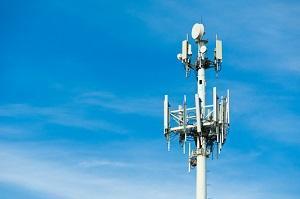 We live in a world that is more connected than it has ever been. With a few taps on a smartphone, it is possible to access virtually any piece of information and to connect people from around the globe. One of the most pressing questions of the digital age, however, is in regard to protecting personal privacy. Do we forfeit our privacy by using our mobile devices? According to a recent U.S. Supreme Court ruling regarding a robbery conviction, the answer to that question is “no.”
We live in a world that is more connected than it has ever been. With a few taps on a smartphone, it is possible to access virtually any piece of information and to connect people from around the globe. One of the most pressing questions of the digital age, however, is in regard to protecting personal privacy. Do we forfeit our privacy by using our mobile devices? According to a recent U.S. Supreme Court ruling regarding a robbery conviction, the answer to that question is “no.”
Constant Signals
Any time that your cell phone is on, it is sending and receiving signals to and from cell towers in the area. These signals let the towers know that your phone is turned on and ready to receive incoming calls or messages. They may also be using the towers to access the internet so apps like Facebook and Instagram, or even basic email, can be updated. What you may not have considered is that every time your phone connects to a nearby tower, a record of that connection is made.
There are two distinct types of information being recorded. The first is fairly obvious and it is the content of the signal. The content includes the text of a text message, the body of an email, or the photo you uploaded to Instagram. The other type of information is known as metadata. Metadata includes specifics regarding the date, time, and nature of the connection between a cell phone and the tower but not the actual content. Both types of information are typically accessible by the cell phone service provider and both could be very valuable in certain types of investigations.
Courts have generally required law enforcement and prosecutors to obtain warrants before gathering content such as a series of text messages or records of phone calls. The rules were not so strict regarding metadata. The government has maintained that cell phone service agreements allow third-parties—the service providers—to have this information so there is no reasonable expectation of privacy. In a precedent-setting ruling last week, the U.S. Supreme Court rejected that claim.
Carpenter v. United States
In the case before the Supreme Court, a Michigan man had been arrested and convicted on charges of armed robbery. Prosecutors relied, in part, on evidence obtained by the FBI from the man’s cell phone carrier. Under the federal Stored Communications Act, the government only had to show that the metadata records were relevant to an investigation rather than the more stringent standard of probable cause that a crime had occurred. The cell tower records effectively tracked the man’s movements over a period of 127 days by mapping nearly 13,000 location points. The Sixth Circuit Court of Appeals upheld the conviction, holding that there was no reasonable expectation of privacy regarding the location information of a cellular device.
The U.S. Supreme Court issued a 5-4 decision last week that overturned the lower courts’ decisions. The court determined that obtaining cell-site location information (CSLI) constitutes a Fourth Amendment search, which means that a warrant based on probable cause is necessary. Legal experts have acknowledged that the ruling is likely to open a floodgate of motions filed by defendants in other cases where law enforcement and prosecutors obtained CLSI.
Call Us for Help
At Woolf & Ross Law Firm, LLC, we understand that it can be difficult to know for sure whether your Fourth Amendment rights have been violated. That is why you should contact an experienced Connecticut criminal defense attorney as soon as you learn that you are being investigated in connection with a crime. Call 860-290-8690 for a free consultation, and get the help you need right away.
Sources:
https://www.supremecourt.gov/opinions/17pdf/16-402_h315.pdf
https://www.cnbc.com/2018/06/25/privacy-scotus-cell-data-carpenter-v-usa.html
 50 Founders Plaza
50 Founders Plaza

